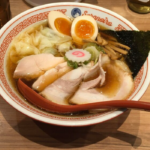When communicating with Japanese people, certain words or phrases may come across as rude or disrespectful, even if they seem harmless in other contexts. Here are five phrases you should be careful not to use, and what makes them potentially offensive.
1. “You’re Too Quiet!”
In Japanese culture, silence is often considered a sign of politeness or deep thought. When you point out that someone is “too quiet,” it may feel like you are criticizing them for being respectful. Japanese people may prefer listening carefully to expressing their opinions openly, especially in group settings.
2. “Why Do You Always Apologize?”
Apologizing frequently is a cultural norm in Japan, used not only to express regret but also to show humility and maintain harmony. Asking someone why they apologize so much can imply that you don’t understand or appreciate their cultural values. Instead, it may be better to recognize their gesture as a sign of politeness.
3. “You Should Speak Up More”
Japanese people are often taught to avoid standing out or making others feel uncomfortable. Encouraging someone to speak up may feel like you’re pushing them to act against their cultural norms. While assertiveness is valued in some cultures, it can come across as confrontational in Japan.
4. “You’re So Polite—It’s Strange”
While it might be meant as a compliment, pointing out someone’s politeness can come off as condescending or even sarcastic. Japanese culture places a high value on politeness, so highlighting it as something unusual may make the person feel self-conscious or uncomfortable.
5. “Do You Really Need to Be So Formal?”
Formality is a fundamental aspect of Japanese communication. Criticizing someone’s formal language or behavior can be seen as disrespectful. Japanese people often use formal speech to show respect, especially in professional settings or with people they don’t know well. Dismissing this formality can be perceived as undermining cultural norms.
Understanding the cultural context behind these phrases can help you communicate more effectively and avoid misunderstandings. Being sensitive to these nuances shows respect for Japanese customs and can greatly improve your interactions.





